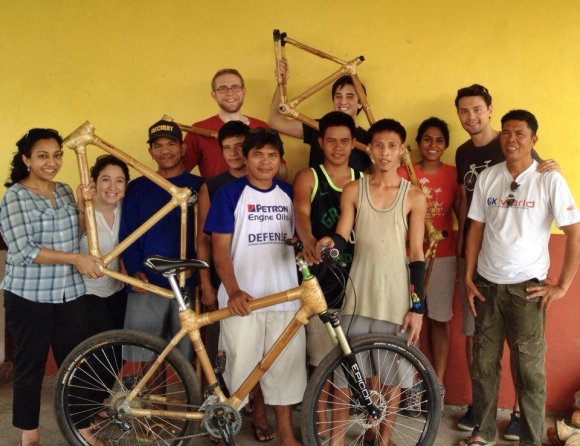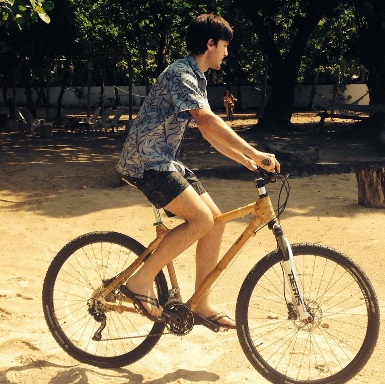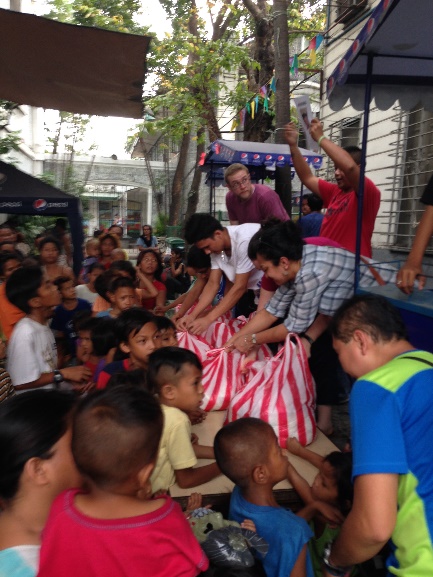GSE: A Bamboo Bike Ride With A Social Enterprise
I believe that the program in Global Social Entrepreneurship (GSE) truly embodies the school mission of educating leaders in business and society. When I decided to come to SOM, I knew I wanted to try things that were beyond my comfort zone, and as someone with no previous experience with social enterprises, the GSE program has given me a hands-on and highly rewarding opportunity to provide pro bono consulting to a social organization in the developing world.
Preparing for the adventure
For the first time, GSE is teaming up with one of Yale SOM’s partner schools from the Global Network for Advanced Management, the Asian Institute of Management (AIM). 25 Yale students and 5 AIM MBA’s were selected to work with five social enterprises in the Philippines.
I was very fortunate to consult for Bambike, a socio-ecological enterprise that hand-makes bamboo bicycles with fair trade labor and sustainable building practices. In preparation for our country visit, our SOM team (Purwa, Emily, Disha, Erik and me) had weekly calls with Bryan “Bambryan” McClelland Benitez, founder of Bambike, to understand its social impact, production and distribution challenges, and market opportunities.
Bambikes, Bambuilders, and Bambuddies
As part of the project, we spent one week in the Philippines with Bambike to learn about its manufacturing capabilities and to discuss business opportunities. Our first activity was a trip to the Gawad Kalinga community in the province of Tarlac to see the Bambuilders, the handcrafters of bambikes, in action. We learned every step to create the bike frames from the cutting of the raw bamboo poles to the sanding and painting of the finished bike frame. The bambuilders are capable of producing up to 10 bike frames per week. We also had the opportunity to see Brother Jun, one of the bambuilders, become the operations manager responsible for the production of the frames in GK as part of the plan that Bambike has to grow and empower people. The community has also benefited from a teacher hired by the organization to teach preschoolers, six full time jobs created related to the production of frames, and the construction of a bamboo playground among others.
So, how does it feel to ride bamboo bike? Simply bambtastic!
We had the opportunity to ride the bikes around the historical quarter of Intramuros in Manila. I rode the Miranila Classic model, which is a single speed bike for urban commuting (probably ideal for New Haven). People in the city would point at us during the ecotour around Intramuros and shouted at a distance “Kawayan,” the word in Tagalog for bamboo. While we were having a break, some skeptical locals approached us and touched the bike to verify that it was indeed made of bamboo.
Giving something back to the community It was also the first time that the GSE teams took some time to volunteer in a community service project. Our team joined the Kalaw Feeding Project, a program to incentivize the homeless to save money for the future. People who save money each day and their families are entitled to have a meal provided by the program. We helped to distribute the food and it was an interesting experience to realize the economic gaps in the developing world.
It was also the first time that the GSE teams took some time to volunteer in a community service project. Our team joined the Kalaw Feeding Project, a program to incentivize the homeless to save money for the future. People who save money each day and their families are entitled to have a meal provided by the program. We helped to distribute the food and it was an interesting experience to realize the economic gaps in the developing world.
Reflections and next steps
Social enterprises always struggle with scale and reach. Challenges during the start-up stage revolve around raising capital and developing a standard product while a growth stage requires a more complex and simultaneous juggling between production, distribution, sales, and innovation with minimal resources.
Based on what we learned in The Philippines, we are going to work during the following weeks to help Bambike become an international brand by designing a sustainable production and distribution strategy. There are a lot of opportunities where we can help Bambike and GSE is a perfect opportunity to apply all the concepts of the SOM Core Curriculum in the real world.
